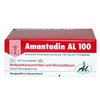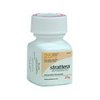INDICATIONS
Diltiazem is used to treat hypertension (high blood pressure), angina (chest pain), and certain heart rhythm disorders.
INSTRUCTIONS
Take diltiazem exactly as prescribed by your doctor. Do not take in larger or smaller amounts or for longer than recommended. Follow the directions on your prescription label.
Your doctor may occasionally change your dose to make sure you get the best results.
Take diltiazem with a full glass of water. Do not crush, chew, break, or open an extended-release tablet or capsule. Swallow it whole. Breaking or opening the pill may cause too much of the drug to be released at one time.
If you have trouble swallowing a diltiazem capsule whole, ask your doctor or pharmacist if it is safe for you to open the capsule and sprinkle the medicine into a spoonful of applesauce to make swallowing easier. Swallow this mixture right away without chewing. Do not save the mixture for later use. Discard the empty capsule.
Use diltiazem regularly to get the most benefit. Get your prescription refilled before you run out of medicine completely.
Do not stop taking this medication without first talking to your doctor. If you stop taking diltiazem suddenly, your condition may become worse.
If you are being treated for high blood pressure, keep using diltiazem even if you feel well. High blood pressure often has no symptoms. You may need to use blood pressure medication for the rest of your life.
Diltiazem may be only part of a complete program of treatment that also includes diet, exercise, and other medications. Follow your diet, medication, and exercise routines very closely.
To be sure this medicine is helping your condition and is not causing harmful effects, your blood pressure will need to be checked often. Your liver and kidney function may also need to be tested. Visit your doctor regularly.
If you missed a dose – take the missed dose as soon as you remember. Skip the missed dose if it is almost time for your next scheduled dose. Do not take extra medicine to make up the missed dose.
DOSAGE
Use exactly as prescribed by your Health Provider.
Initial dose: 30 to 60 mg orally 3 to 4 times a day.
Maintenance dose: 180 to 360 mg orally/day in divided doses.
STORAGE
Store this medicine at room temperature in a tightly-closed container, away from heat and light. Keep out of reach of children and pets.
You should not use Diltiazem if you are allergic to its components, or if you have:
- certain heart conditions, especially “sick sinus syndrome” or “AV block” (unless you have a pacemaker);
- low blood pressure; or
- if you have recently had a heart attack.
To make sure you can safely take diltiazem, tell your doctor if you have any of these other conditions:
- kidney disease;
- liver disease;
- congestive heart failure; or
- if you are also taking clonidine (Catapres).
FDA pregnancy category C. It is not known whether diltiazem will harm an unborn baby. Tell your doctor if you are pregnant or plan to become pregnant while using this medication. Diltiazem can pass into breast milk and may harm a nursing baby. Do not use diltiazem without telling your doctor if you are breast-feeding a baby.
Diltiazem may impair your thinking or reactions. Be careful if you drive or do anything that requires you to be alert. Avoid drinking alcohol while taking diltiazem.
Grapefruit and grapefruit juice may interact with diltiazem and lead to potentially dangerous effects. Discuss the use of grapefruit products with your doctor.
Avoid exposure to sunlight or tanning beds. Diltiazem can make you sunburn more easily. Wear protective clothing and use sunscreen (SPF 30 or higher) when you are outdoors.
Get emergency medical help if you have any of these signs of an allergic reaction to diltiazem: hives; difficulty breathing; swelling of your face, lips, tongue, or throat. Call your doctor at once if you have a serious side effect such as:
- a red, blistering skin rash;
- swelling in your hands or feet;
- trouble breathing;
- slow heartbeats;
- dizziness, fainting, fast or pounding heartbeat;
- upper stomach pain, itching, loss of appetite, dark urine, clay-colored stools, jaundice (yellowing of the skin or eyes); or
- severe skin reaction — fever, sore throat, swelling in your face or tongue, burning in your eyes, skin pain, followed by a red or purple skin rash that spreads (especially in the face or upper body) and causes blistering and peeling.
Less serious diltiazem side effects may include:
- headache;
- dizziness, weakness, tired feeling;
- upset stomach, nausea;
- sore throat, cough, stuffy nose; or
- flushing (warmth, redness, or tingly feeling).
This is not a complete list of side effects and others may occur. Call your doctor for medical advice about side effects.














Reviews
There are no reviews yet.